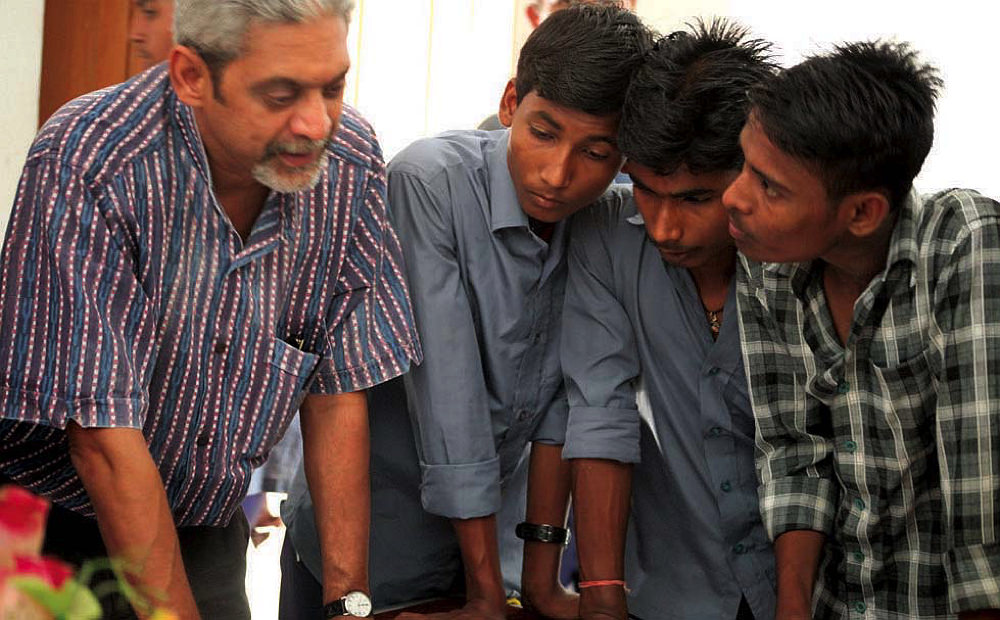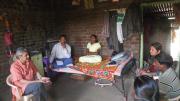Barely making ends meet takes a mental toll whether you are a retail worker in New Jersey or a farmer in Bangladesh. For many years, though, mood disorders were seen largely as diseases of affluent nations: it was assumed that the First World worker might benefit from treatment for depression or anxiety, while the farmer simply needed some way to gain economic stability. But increasingly, researchers are finding that poverty, in either context, can lead to mental illness.
Furthermore, the relationship goes both ways: financial troubles can lead to depression and anxiety, and depression and anxiety can make it harder for people to succeed economically, potentially leading to a self-perpetuating downward spiral. In a recent review article in Science, Pershing Square professor of global health Vikram Patel and a group of economists point to a range of studies that suggest addressing either end of this problem can have surprising, encouraging effects. Small payments can help boost people’s moods for significant periods of time, and even short, basic treatments can alleviate mental suffering—in both cases helping individuals get back on their feet mentally and financially. Mental-health care, they argue, can be a tool to help lift people out of poverty globally.
Patel, a research psychiatrist who is also a professor of global health and population at the Harvard Chan School of Public Health, moved to Zimbabwe in 1993 and set about answering some pressing questions. “The first question people would ask me was, are mental-health problems real health problems that affect poor people in poor countries?” he said in an interview. Living conditions can be so dire, mental health might seem to barely rank on a list of urgent issues to address. But Patel and his colleagues found that poverty in Zimbabwe is as linked to a higher risk of depression and anxiety as to greater risk of suffering from malaria or tuberculosis.
What’s more, “There are factors associated with poverty that increase risk of depression, but also factors associated with depression that make it harder to get out of poverty,” he said. Missing days of work or failing to take advantage of new opportunities because of depression or anxiety can be costly. And fees for mental-health services are usually paid out of pocket in many developing nations, making such care expensive.
Since that time, various researchers have launched trials to see whether grants of money and other anti-poverty measures lessen depression and anxiety. In their recent assessment, Patel and his colleagues consider 30 studies from the last decade, and find that such interventions usually have positive effects. In one trial, households in Kenya received cash grants equal to three to 12 months of their normal income. Four months later, they were significantly less depressed than members of the control households; a year later, the difference was even more pronounced. Another study of rural Indonesian villages that received cash transfers reported 18 percent fewer suicides than those that did not, with the largest effect in villages struck by drought.
Patel and colleagues then assessed the effects of counseling on nearly 500 depressed people in Goa, India. The people who had received treatment—“evidence-based interventions for depression in primary care,” in Patel’s words—were 60 percent more likely to feel better 12 months later than the control group did; they were also able to work more days a month, and spent less on health care. Researchers working in Nepal found similar results.
What’s particularly striking is that the treatment people receive doesn’t have to come from specialists. Psychiatrists are rare in many parts of the world, so Patel and his team have trained lay people to deliver a simple form of cognitive behavioral therapy called behavioral activation, used in their Goa study. A group led by psychiatrist Dixon Chibanda in Zimbabwe trains local women to act as neighborhood grandmothers: lay therapists who provide counseling on benches outside health clinics. This approach has proved very successful.

Patel discusses the peer-group mental-health component of a large school-based trial with adolescents in Bihar, India.
Photograph courtesy of Vikram Patel
Moreover, such strategies may be broadly applicable. In well-off countries such as the United States, Patel said, citing a 2020 study, only slightly more than 40 percent of people with major depressive disorder get any treatment, in part because they lack access to specialized providers like psychiatrists and psychologists. That suggests these approaches are “very relevant to the United States and especially to historically marginalized communities.”
This summer, Patel and a group of collaborators plan to train U.S. medical workers, including nurses and physician assistants, in basic mental-health care techniques, similar to those used in Goa. The program will begin in Texas, which ranked last in the country in a 2020 assessment of access to mental-health care. The result, they hope, will be that patients, from retail workers to farm laborers, will be able to find care for depression and anxiety at the same clinics they would visit for any other kind of care—within their communities.









